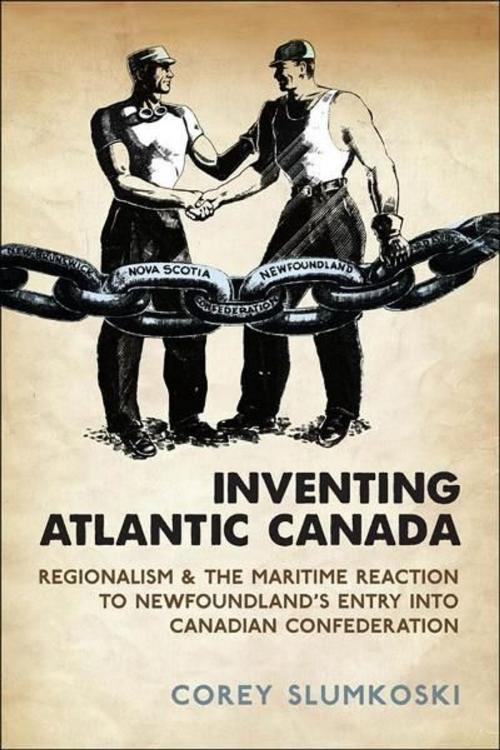Inventing Atlantic Canada
Regionalism and the Maritime Reaction to Newfoundland's Entry into Confederation
Nonfiction, History, Americas, Canada, Modern, 20th Century| Author: | Corey Slumkoski | ISBN: | 9781442695115 |
| Publisher: | University of Toronto Press, Scholarly Publishing Division | Publication: | May 30, 2011 |
| Imprint: | Language: | English |
| Author: | Corey Slumkoski |
| ISBN: | 9781442695115 |
| Publisher: | University of Toronto Press, Scholarly Publishing Division |
| Publication: | May 30, 2011 |
| Imprint: | |
| Language: | English |
When Newfoundland entered the Canadian Confederation in 1949, it was hoped it would promote greater unity between the Maritime provinces, as Term 29 of the Newfoundland Act explicitly linked the region's economic and political fortunes. On the surface, the union seemed like an unprecedented opportunity to resurrect the regional spirit of the Maritime Rights movement of the 1920s, which advocated a cooperative approach to addressing regional underdevelopment. However, Newfoundland's arrival did little at first to bring about a comprehensive Atlantic Canadian regionalism.
Inventing Atlantic Canada is the first book to analyse the reaction of the Maritime provinces to Newfoundland's entry into Confederation. Drawing on editorials, government documents, and political papers, Corey Slumkoski examines how each Maritime province used the addition of a new provincial cousin to fight underdevelopment. Slumkoski also details the rise of regional cooperation characterized by the Atlantic Revolution of the mid-1950s, when Maritime leaders began to realize that by acting in isolation their situations would only worsen.
When Newfoundland entered the Canadian Confederation in 1949, it was hoped it would promote greater unity between the Maritime provinces, as Term 29 of the Newfoundland Act explicitly linked the region's economic and political fortunes. On the surface, the union seemed like an unprecedented opportunity to resurrect the regional spirit of the Maritime Rights movement of the 1920s, which advocated a cooperative approach to addressing regional underdevelopment. However, Newfoundland's arrival did little at first to bring about a comprehensive Atlantic Canadian regionalism.
Inventing Atlantic Canada is the first book to analyse the reaction of the Maritime provinces to Newfoundland's entry into Confederation. Drawing on editorials, government documents, and political papers, Corey Slumkoski examines how each Maritime province used the addition of a new provincial cousin to fight underdevelopment. Slumkoski also details the rise of regional cooperation characterized by the Atlantic Revolution of the mid-1950s, when Maritime leaders began to realize that by acting in isolation their situations would only worsen.















